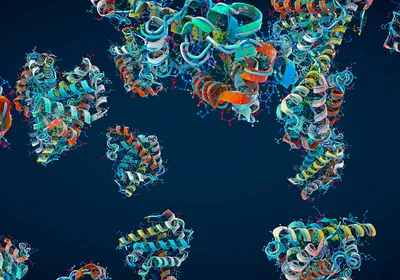For Eric E. Conn, teaching certainly has its rewards. The University of California, Davis, professor of biochemistry has been awarded the 1990 UC-Davis Prize for Teaching and Scholarly Achievement. Established by the Cal Aggie Foundation, a nonprofit organization that supports UC-Davis, the $25,000 prize pays tribute to faculty members on campus who demonstrate throughout their academic careers a dedication to teaching undergraduates as well as to the achievement of personal scholarly goals.
The biochemist's research has included work on cyanogenic glycosides, substances that produce cyanide in plants. The focus of his work has been on understanding the process of cyanide formation in plants and the role played by the poisonous substance in plant metabolism. It is believed that cyanide, with its varied functions, provides a chemical line of defense for the roughly 2,000 plant species known to produce it, protecting them from grazers and the invading growth of other plants.
...

















